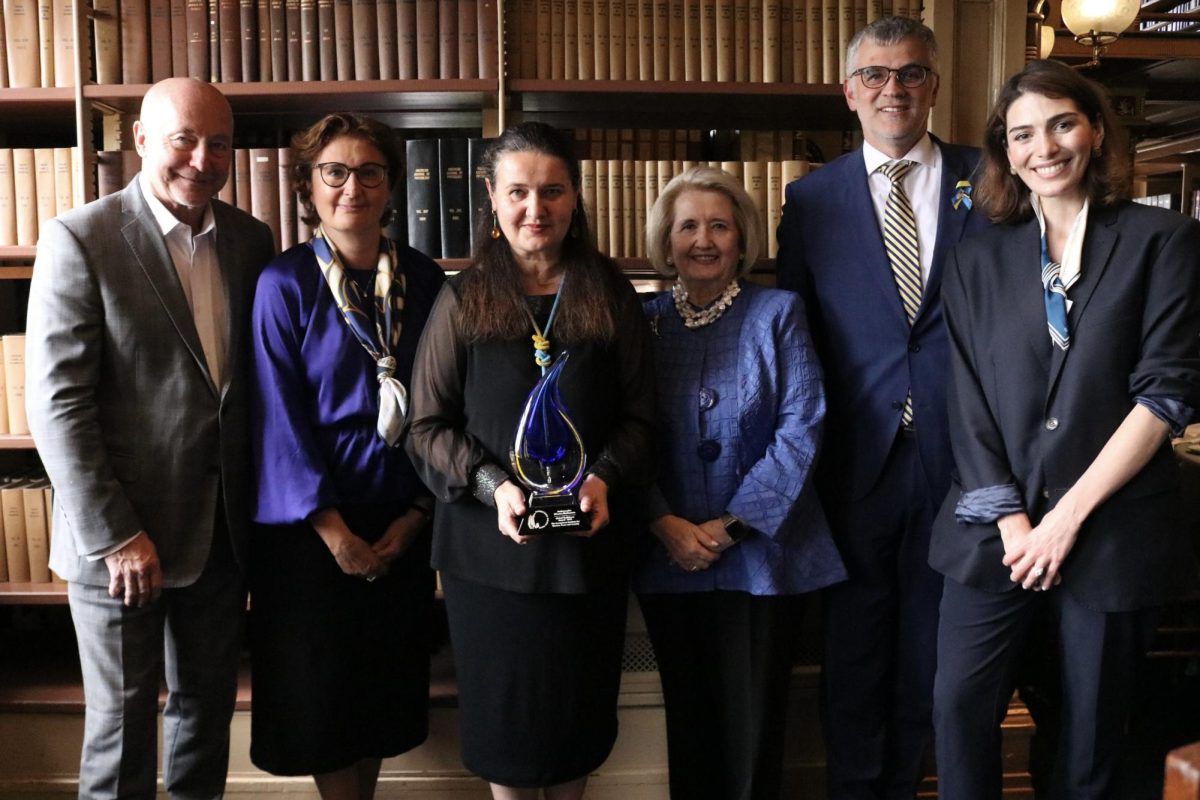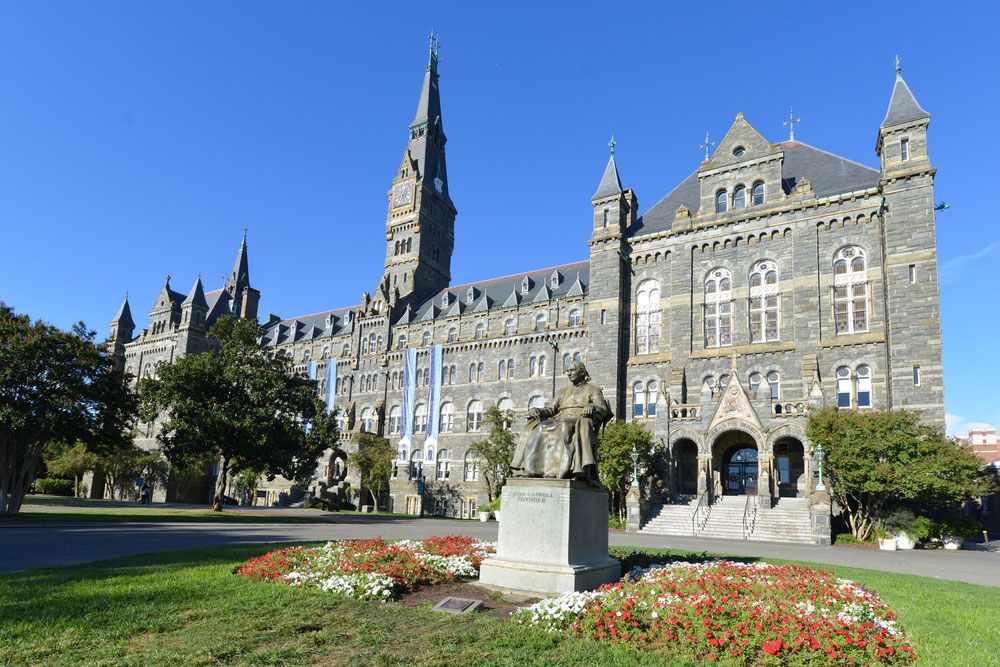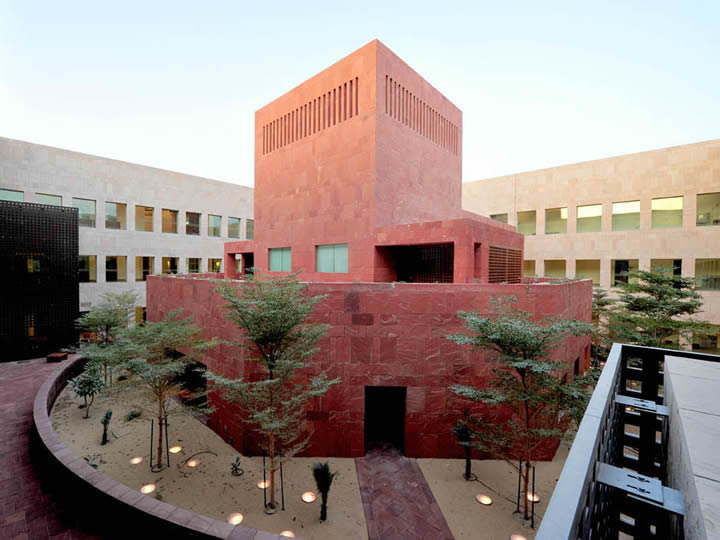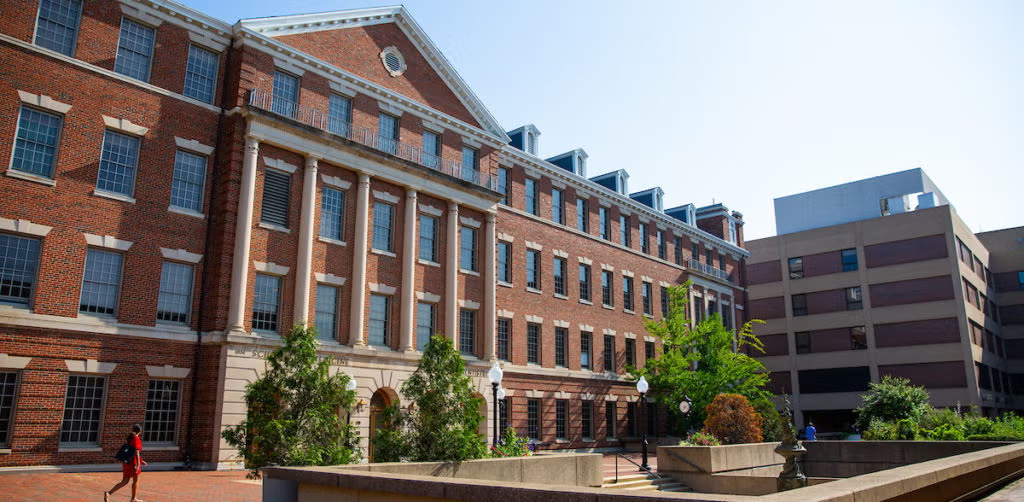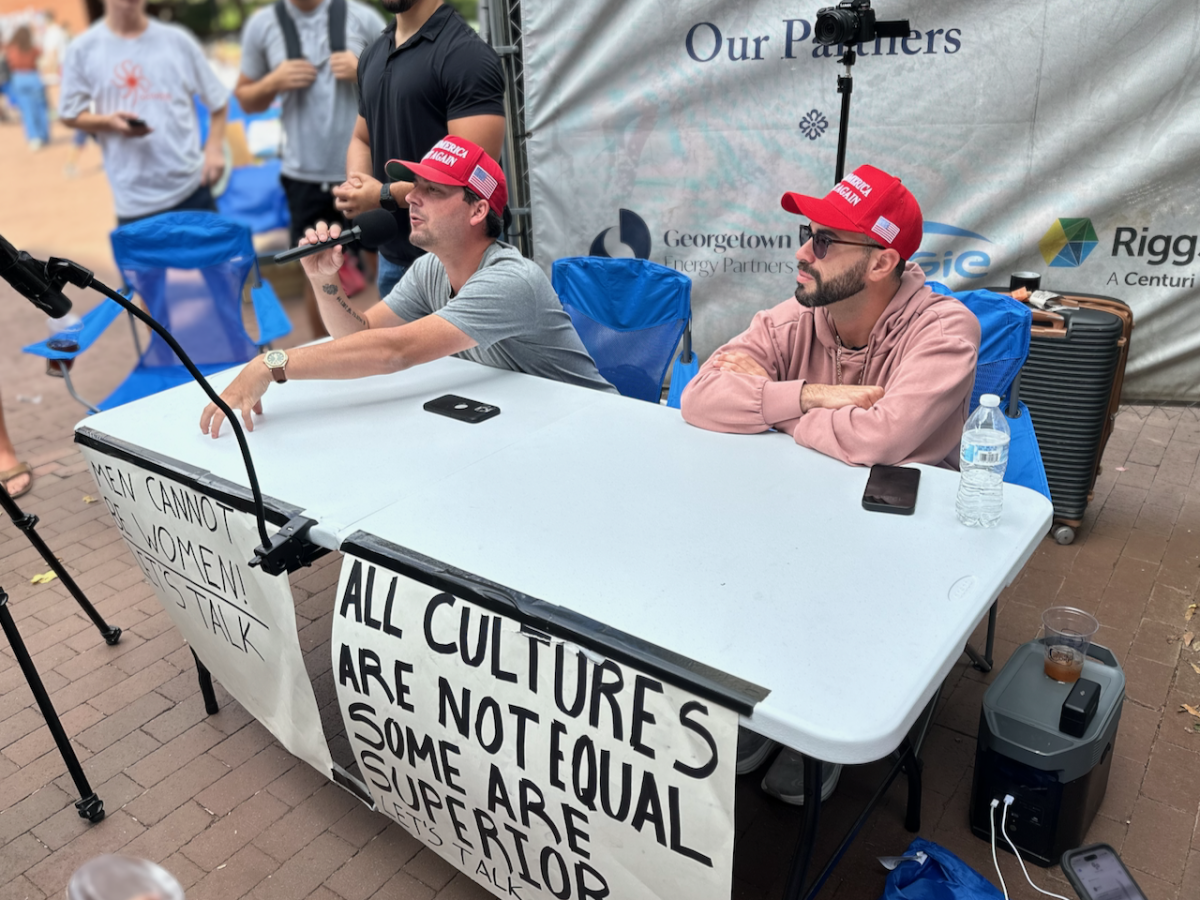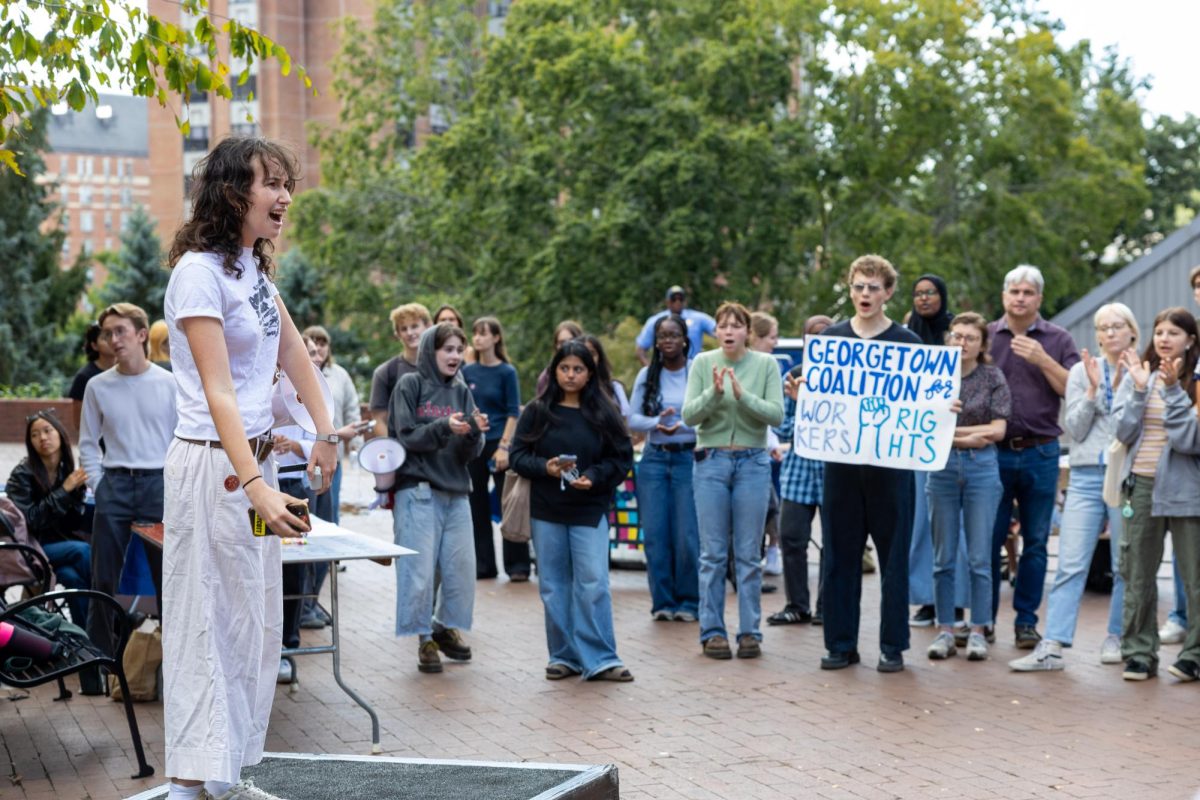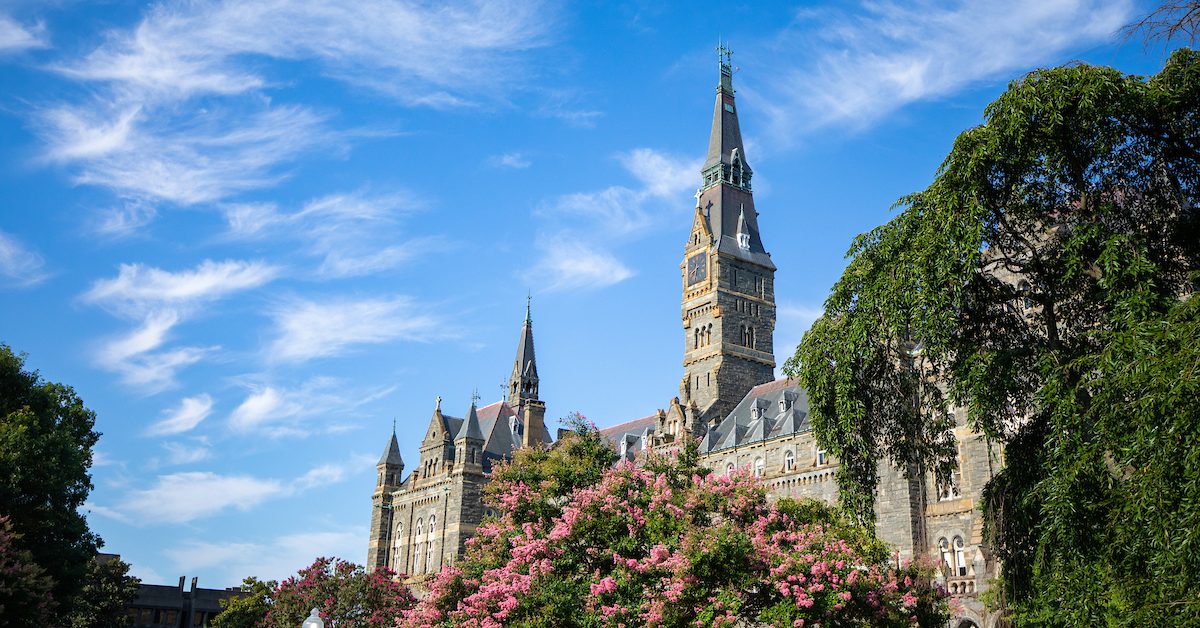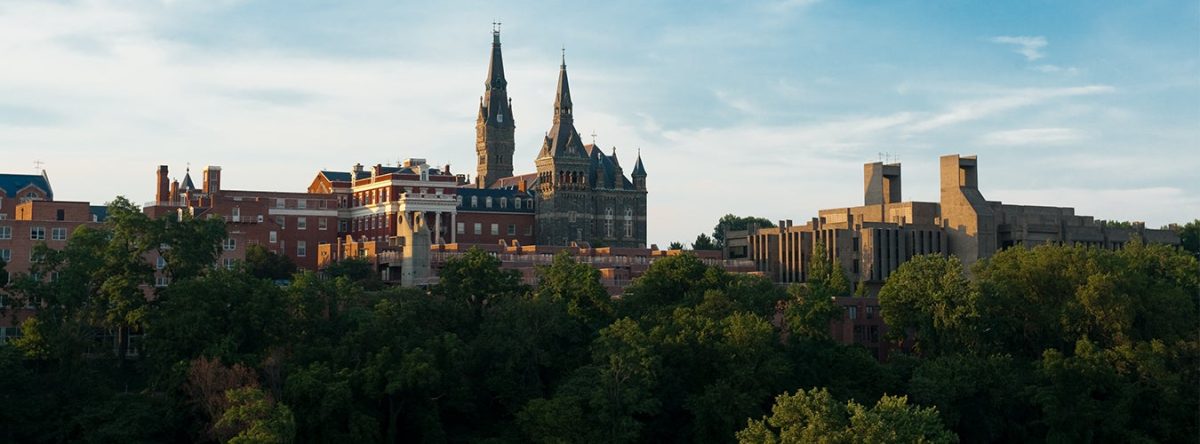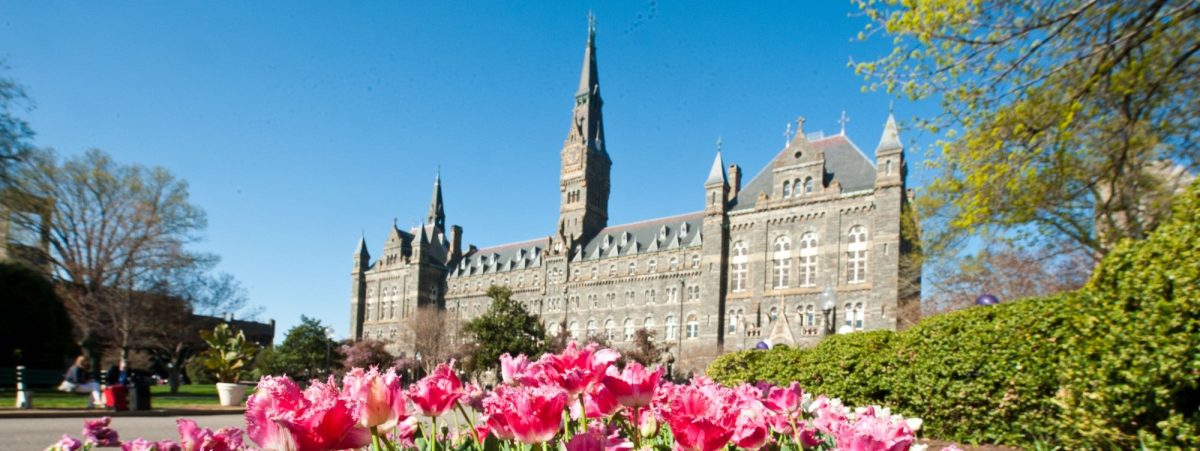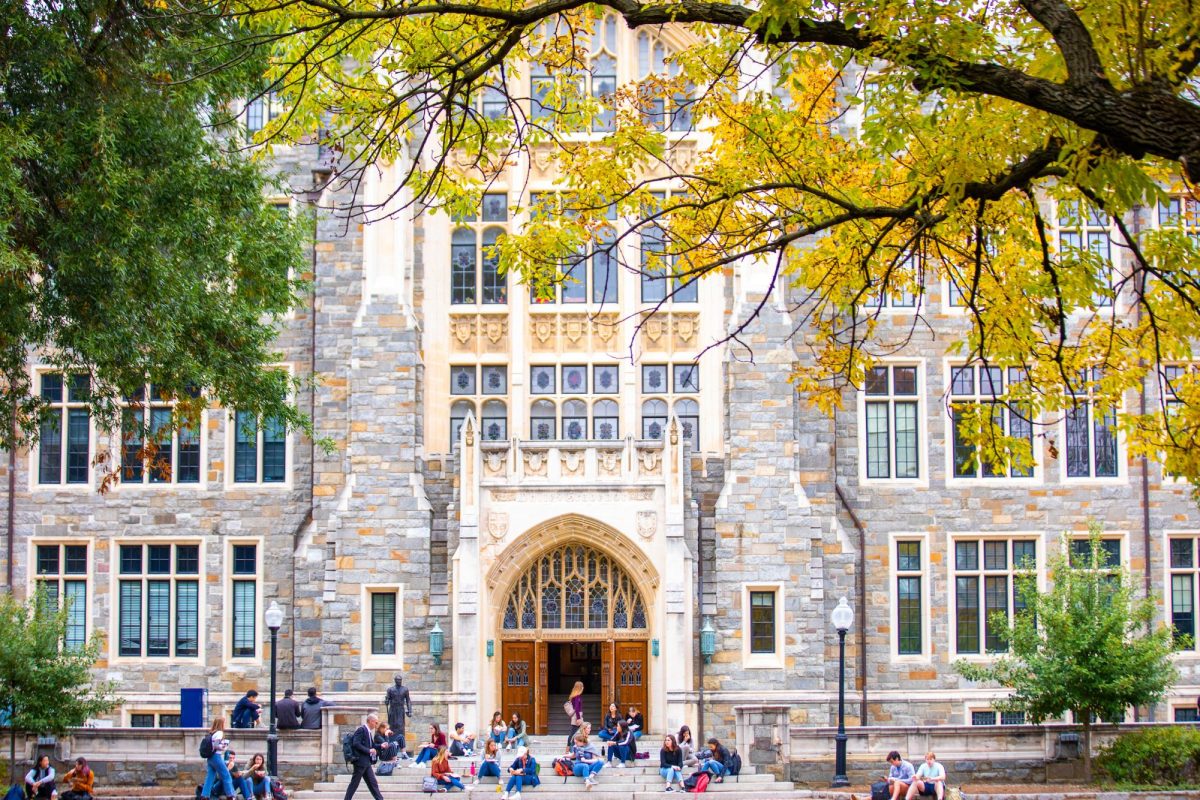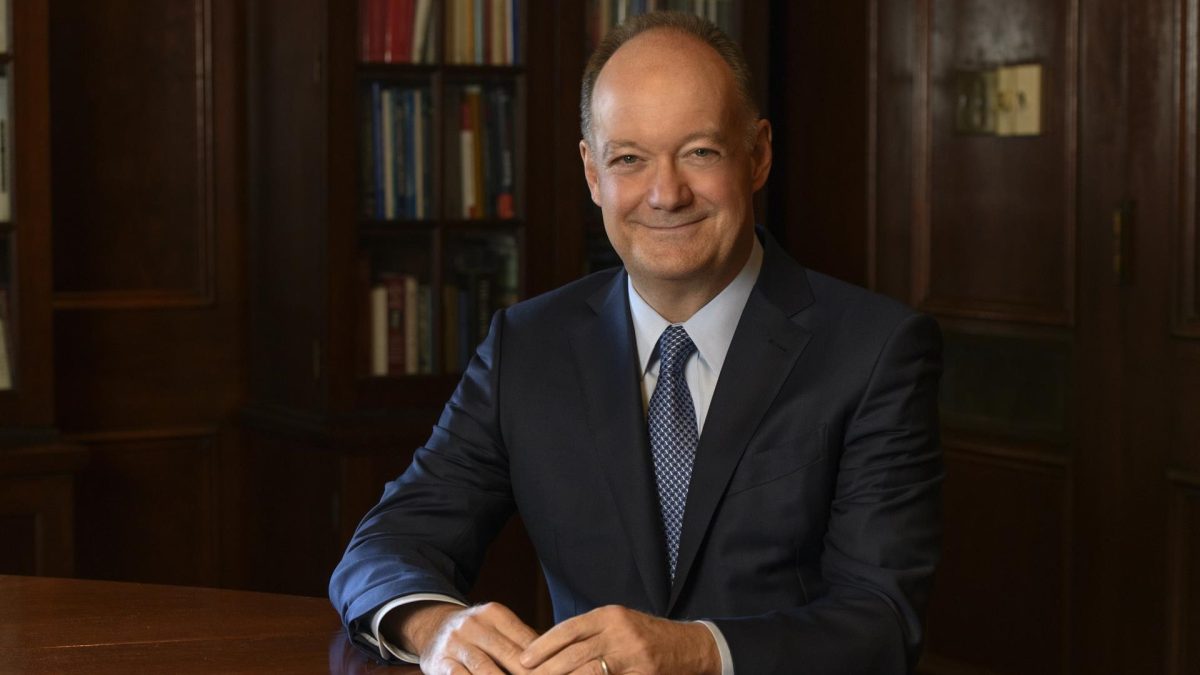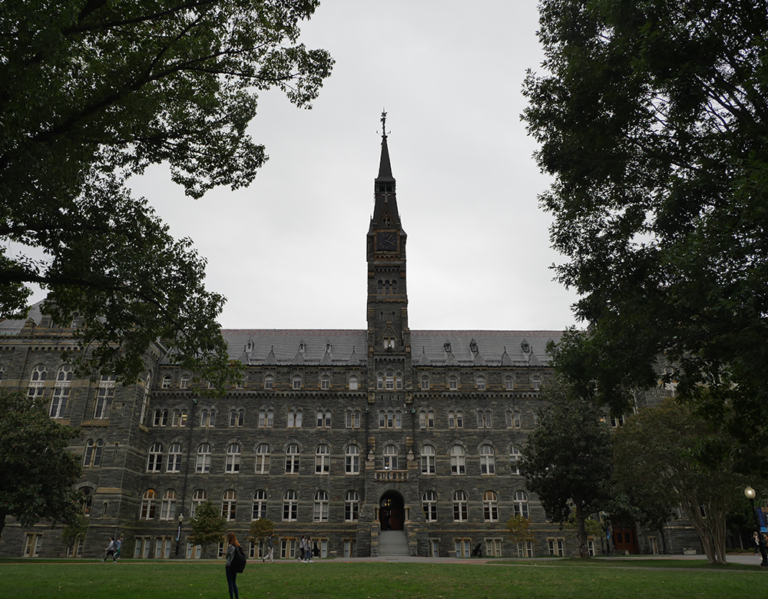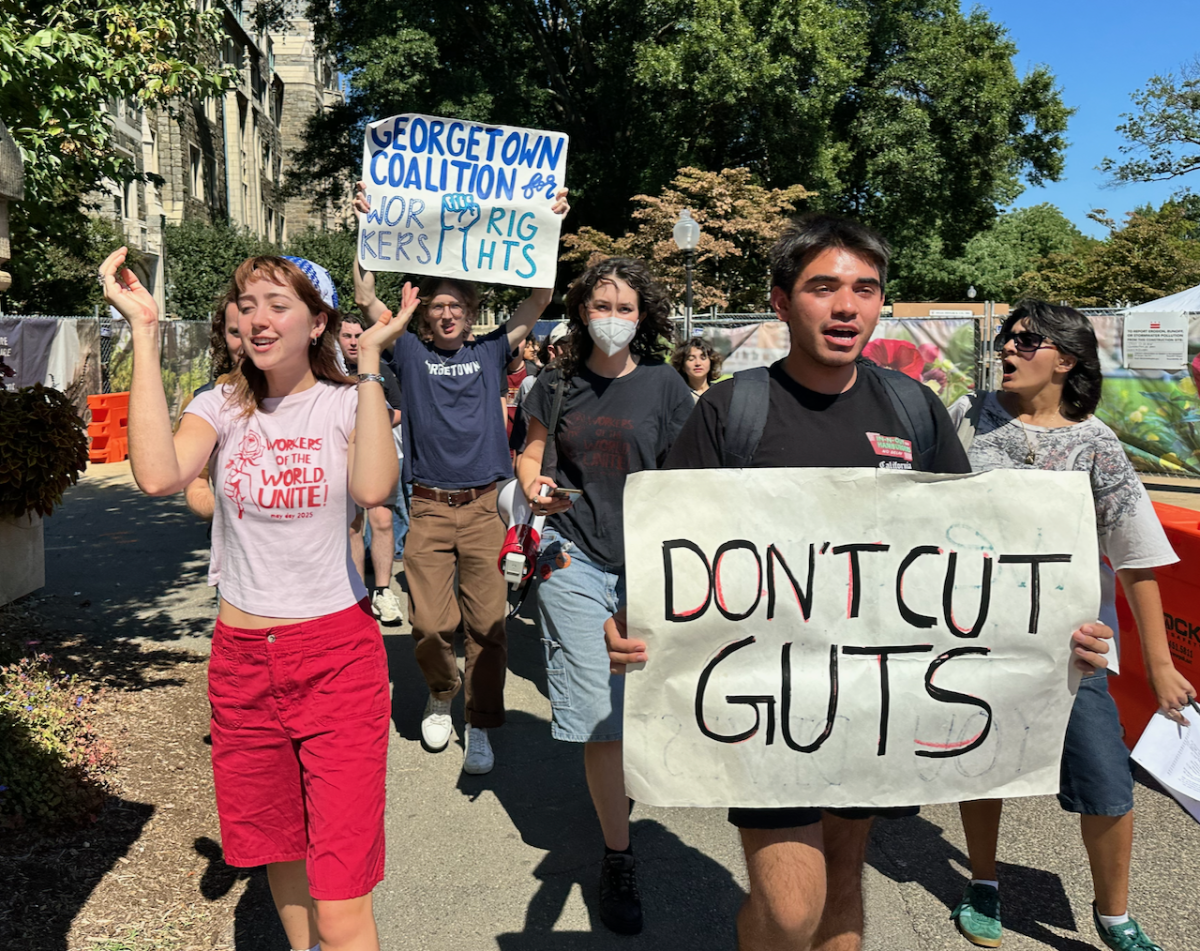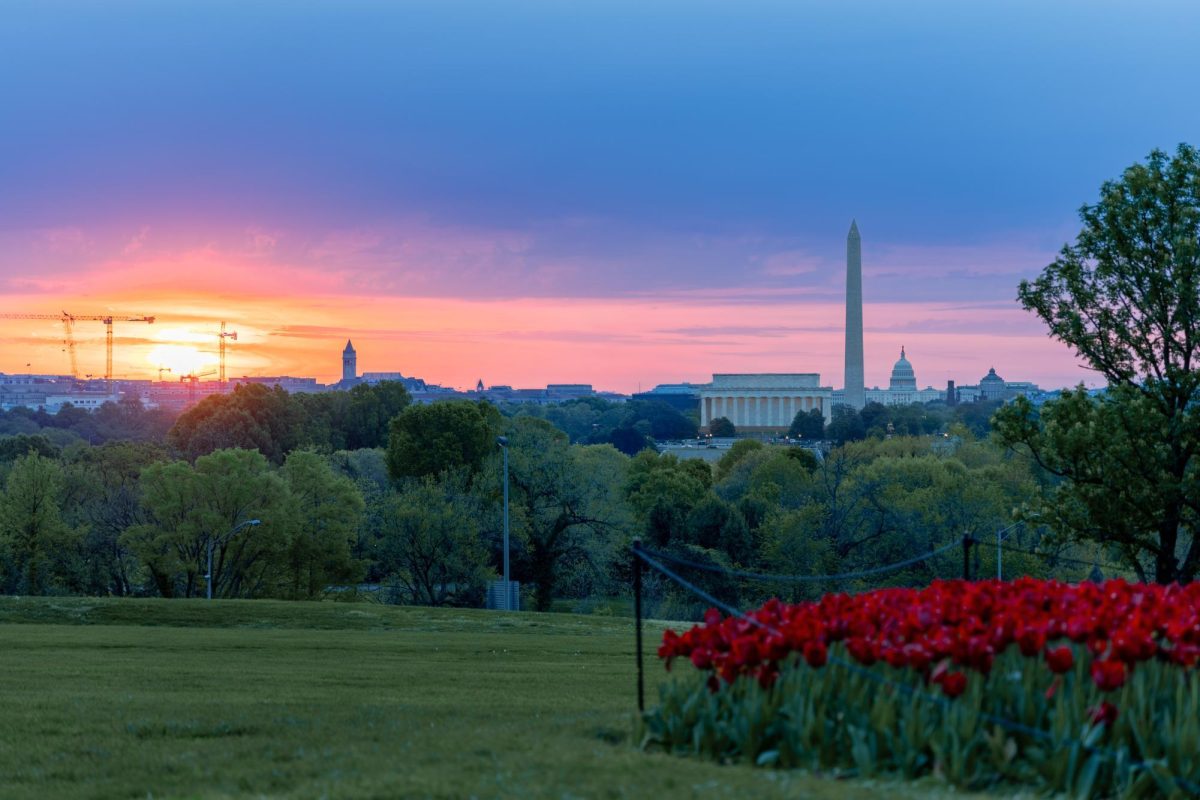The Hoya sat down with the six Georgetown University Institute of Politics and Public Service (GU Politics) fellows for the Fall 2025 semester to discuss the federalization of the Washington, D.C. police force, the federal government and higher education and polarized politics.
The fellows in GU Politics’ 10th anniversary class include Jamelle Bouie, The New York Times opinion columnist; Laphonza Butler, former U.S. senator (D-Calif.); Rob Flaherty, White House director of digital strategy under the Biden administration; Mark Green, former ambassador to Tanzania and former U.S. Representative (R-Wis.); Amy Howe (GRD ’94, LAW ’98), co-founder of Supreme Court news organization SCOTUSblog; and Scott Jennings, Republican commentator on CNN and former aide to President George W. Bush.
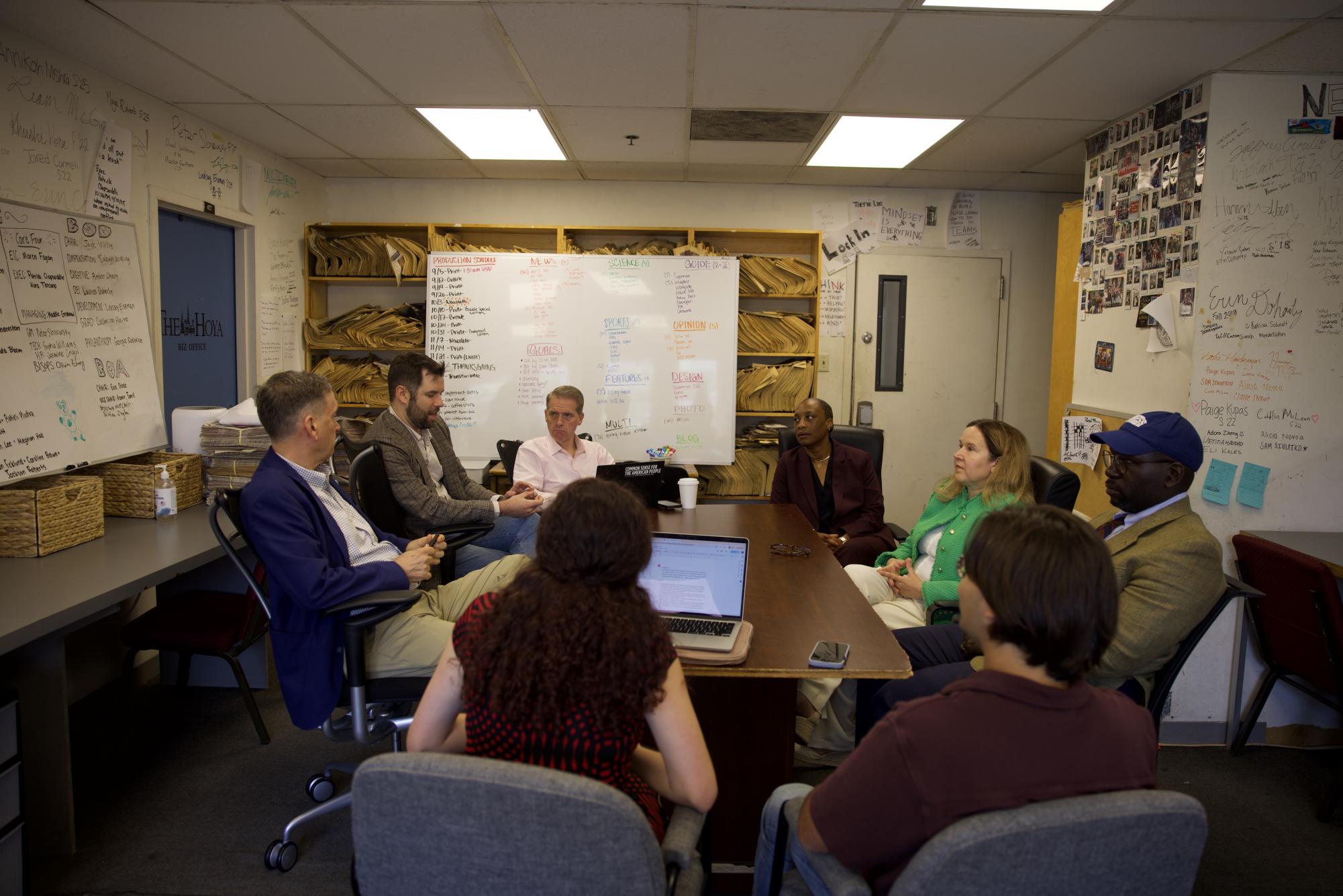
While at Georgetown, the six fellows will host weekly discussion groups with students beginning Sept. 22 where they will examine various political issues, including the U.S. Constitution’s modern role, information and media in politics and American labor.
Below is a partial transcript of the fellows’ discussion with The Hoya.
Only two in 10 adults under 30 say they follow U.S. politics extremely or very closely, compared with a third of all Americans overall who pay close attention, according to a poll from the Associated Press. How can this decline in interest be addressed?
Flaherty: If you look at young people right now, there is a level of earned nihilism towards the political process. I take this from the lens of a Democratic Party operative: It becomes on us to provide a vision for the country that goes beyond just ‘Trump bad’ and puts us in a position of providing tangible policies and values that are going to support that, but also, when we get into office, delivering on those things.
Howe: We have recognized that younger people are not necessarily going to read my 1,500 or 2,000 words on what happened at the Supreme Court today, but we can reach them on TikTok. And so my kids — I have an 18 year old and a 22 year old — don’t read the stuff that I write for the most part, but they do follow the SCOTUSblog TikTok account, and they will watch the four-minute discussion of what happened at the Supreme Court.
Green: Young people who get their information from a whole wide range of sources are bombarded every day with images and clips about things that don’t work, and if they do work, why they won’t work soon. I think the notion of engagement and participation could turn on a dime if young people see things that do work, if they’re given reasons to be hopeful. So I think it’s incumbent, not just on both parties, but on everybody involved in the democratic process, to focus on the possibilities.
The Trump Administration has been in a spat with U.S. universities since the beginning of his second term. Have you felt that tension on campus so far, and how do you think that fight is affecting college students?
Jennings: I think the fight he’s having with some colleges is worth having, truthfully, and they’re all — most of them — had admitted serious problems on their campuses as it relates to antisemitism. Making no judgments about here, of course, but the fight — the broader fight he’s having — I’m glad he’s having it.
Bouie: The thing I’m always struck by whenever I’m on campus — and I live in a college town, so I’m on campus pretty frequently — is the stark distance between how elite media discusses what happens with college campuses and the actual environment and attitudes of students. I’ve never had an experience with students that wasn’t very positive, but if you read quite a bit of coverage about what happens at universities, especially highly selective ones, the coverage makes it seem as if you all are raving monsters, which is simply not the case.
We often focus on the negative aspects of American politics. What is something about our politics that gives you hope?
Green: Chaotic discussions are also good. I like discussions that are free-wheeling. I don’t like limiting free speech on any part of the spectrum, and so I’m hopeful when I come on college campuses. Whether the concerns come from the left or the right, everyone agrees that our universities, in particular, our flagship institutions like Georgetown, are a treasure of America. I think there is a recognition that from these campuses, from the universities, from the debate on universities must come some of the answers for the future.
Butler: It’s easy to fall into the trappings of ‘lack,’ the conversations of pain, all of which are very real. It doesn’t take 100% participation to make progress, and I think that the fact that there is still engagement and debate over the future of our democracy and institutions therein, that is hopeful to me. The silence would bring much more fear to me than the tension.
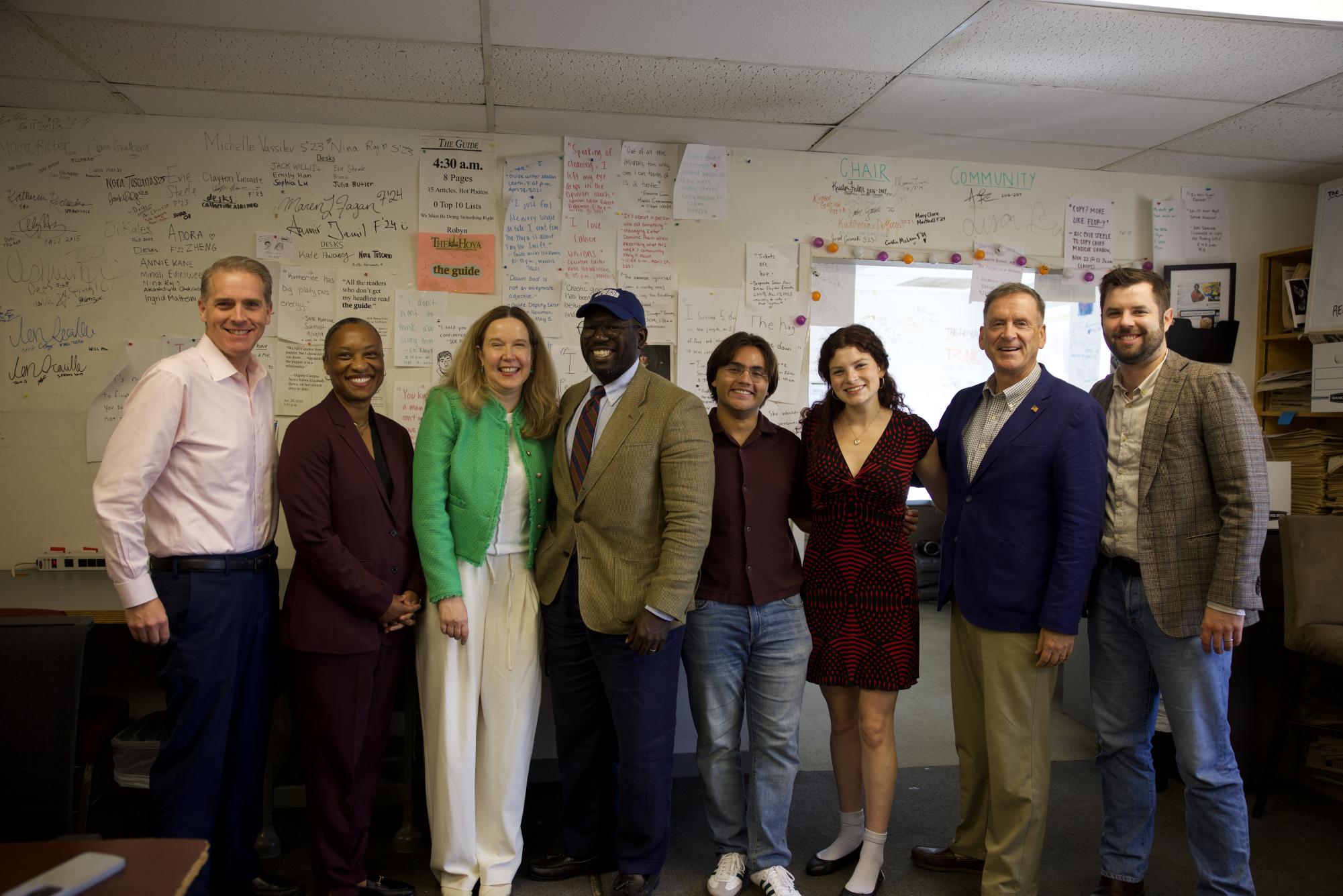
Why did you want to come to Georgetown this semester?
Butler: The gem that this university is, proximate to our nation’s capital, is really inspiring the next generation of policy leaders, foreign service leaders and contributors, thinkers about the issues of tomorrow, whether it’s in public office or, frankly, in the CEO suite. The opportunities to serve look different, and why not be on the campus of one of our nation’s premier institutions, engaging those minds?
Students have raised concerns about the presence of the National Guard, the federalization of Metropolitan Police and the deployment of other federal agents. At the same time, crime in the city has decreased following these actions. How do you interpret this federal takeover?
Bouie: I see the federal takeover of the city as basically being pretextual for the President’s desire to see soldiers on the streets. I say that because if this were a serious effort to reduce the incidence of violence in D.C., you would not be deploying National Guard soldiers to Georgetown. You would not be deploying them to the National Mall. You’d be not even deploying soldiers, honestly. You’d be working closely with the Metropolitan Police to help provide resources for increasing patrols on the streets.
Jennings: I’m for it, and I think it’s been great: almost 2,000 people arrested, 200 illegal guns seized. And my observation walking around town the last few weeks has been that other people who are walking around Washington, D.C. seem to have some appreciation for the guardsmen who are keeping an eye on things. My political view is, if I were running one of these blue cities that was rampant with crime or illegal immigration or what have you, I would probably be asking for more federal resources. But separating that from the National Guard question, which I think is different.
Which party do you think will take control of the U.S. House of Representatives and the Senate in 2026?
Green: I think it stays where it is: Republicans hold the House and the Senate.
Flaherty: Democrats get the House and don’t win the Senate.
Jennings: It looks pretty good for the Republicans in the Senate right now. I’m very 50/50 on the House — it’s a little early to decide.
Butler: I do think the Republicans maintain a majority in the Senate, and agree with Scott’s point that it’s a little far away to be calling a horse race, but I’m optimistic that Democrats will take the majority in the House.
Howe: Are we done with redistricting? That’s the $64,000 question.
Bouie: It’s all going to depend on the combination of the change in economic conditions the last six months of before the election, and whether there’s any thermostatic backlash to the administration. If there’s a decline in economic conditions, the challenging party is probably going to do pretty well.


